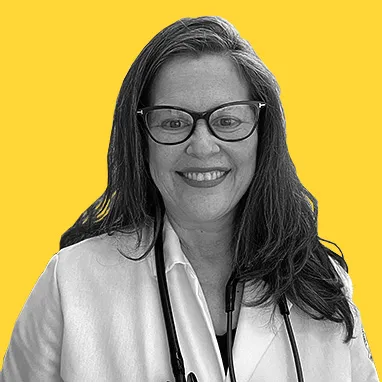Medical oncology is a type of medicine that focuses on the diagnosis, treatment, and prevention of cancer. A medical oncologist’s job is to take care of cancer patients by using things like chemotherapy, hormone therapy, targeted therapy, or immunotherapy.
A medical oncologist will work with other doctors to create a treatment plan that’s best for you. They’ll explain your cancer diagnosis to you, including the type and what stage you have. They’ll also help you manage your cancer symptoms and treatment side effects.
When Will You See a Medical Oncologist?
You’ll probably see a medical oncologist right after you’ve been diagnosed with cancer. This is usually one of the first steps of your cancer journey.
They can help you understand your diagnosis as well as the timeline of your cancer treatment. You’ll also want to see a medical oncologist for any questions you might have.
- A medical oncologist will treat your cancer with chemotherapy, hormone therapy, targeted therapy, or immunotherapy.
- A radiation oncologist will treat your cancer with radiation therapy.
- A surgical oncologist uses surgery to remove tumors. They also perform biopsies, where they’ll remove a tiny piece of tissue so they can test it.
Other oncologists treat certain types of cancer. They include:
- Gynecologic oncologists: Cancers like cervical, ovarian, and uterine
- Hematologist oncologists: Blood cancers like myeloma, leukemia, and lymphoma
- Pediatric oncologists: Cancer in children
What Kind of Training Does a Medical Oncologist Have?
Medical oncologists must first earn a bachelor’s degree. After college, they’ll go to medical school for about 4 years. This includes 2 years of studying in a classroom and 2 years of practice in a hospital setting.
Next, they’ll complete a 2- to 5-year residency where they get special training in a hospital. Finally, they’ll get certified and licensed in the state where they want to practice medical oncology.
How to Find the Right Medical Oncologist for You
Start by asking your primary care doctor for suggestions. Or call a trusted hospital to see what medical oncologists work there and who might be a good fit for you. Choose one who treats the type of cancer you have and who takes your insurance. You can also:
- Talk to friends or family members who’ve had the same cancer. They can tell you which doctors took care of them and what the process was like.
- Ask the medical oncologist about their experience and credentials. They can tell you exactly how many years of experience they have and if they have any advanced or specialized training. For example, if the medical oncologist is board certified in oncology, that means they passed an intense, high-level test.
- Ask how to contact them after hours. Find out if your doctor is available on weekends and holidays.
- Meet the medical oncologist and staff. You can do this either in person or over the phone. Meeting the team can give you a sense of how they’re going to help you with your treatment. This is also a good opportunity to make sure they’re willing and ready to answer your questions.
How to Prepare for an Appointment
Bring any medical records you have, like copies of imaging tests (like MRIs, CT scans, and X-rays). A list of all the medications you take could help, too. Some medical oncologists like it better when you bring the actual medications instead of a list. This includes any supplements, vitamins, or herbs.
It could help to bring a family member or close friend with you. You’ll get lots of information during the appointment, and they can help you by taking notes and listening, in case you forget anything. They can also provide support.
Write down as many questions as you can before your appointment. There’s a chance you might forget once you’re face-to-face with your oncologist. You might want to ask:
- When do I need to start treatment, and what are my treatment options?
- How long will treatment last?
- What are the risks and side effects of this treatment?
- How will treatment affect my daily life or routine?
What to Expect at an Oncology Appointment
If it’s your first oncology appointment, it could last a few hours. The oncologist will spend time going over your medical history.
They might give you a physical exam, even if your primary care doctor did one recently. That’s because physical exams can show signs of cancer that doctors who don’t treat it every day might miss. Your oncologist could also order more tests, like imaging tests (such as CT scans, MRIs, or ultrasounds), or they might take a sample of your blood or urine. You might need a biopsy, too.
During your appointment, the oncologist may give you a basic idea of how long treatment will take. They could also give you a prognosis, or an idea of how you’ll respond to treatment. You might also meet other doctors on your treatment team. They’ll explain things like costs and the insurance process, too.
